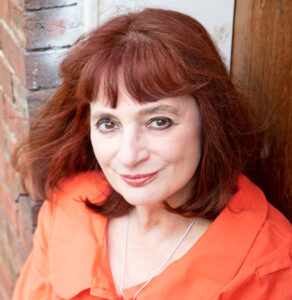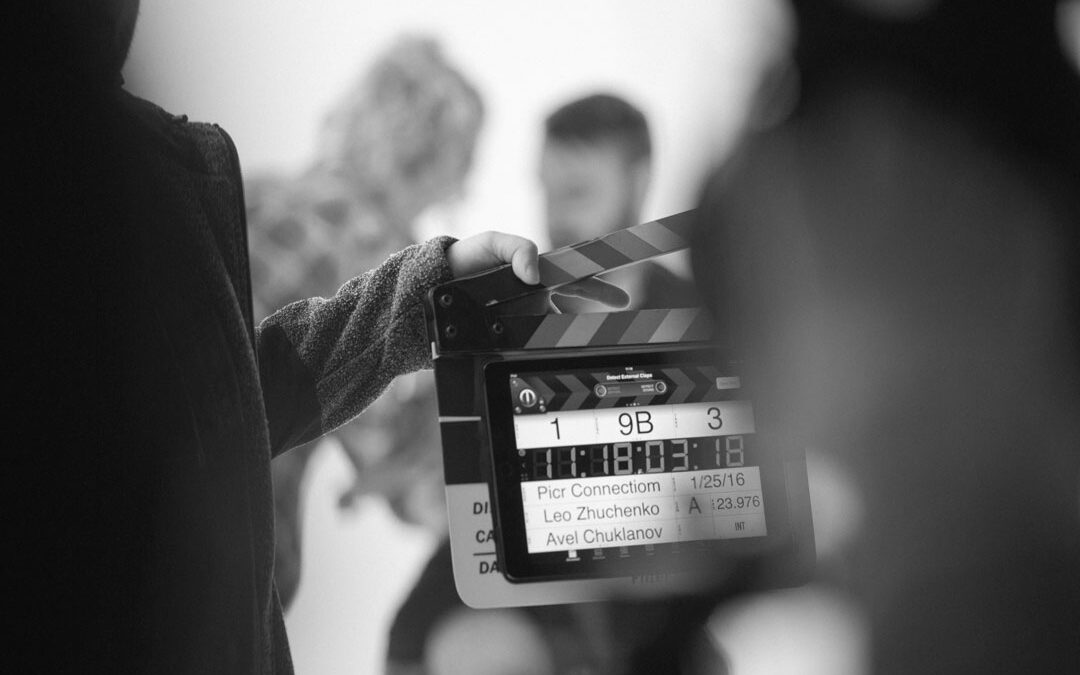In the early 90s, I was hired to act in Film Directing classes for two summers at the Maine Photographic and Film Institute, now called the Maine Media Workshops and College. It still takes place in the seaside town of Rockport. It is up on a hill overlooking postcard sailboats and dinghies on an ocean inlet. The sun is so bright on the water that innumerable plackets of wavelets flash up at tourists like handheld mirrors.
The second summer was the most memorable because that was the year that Alan Arkin directed the Film Directing class. That’s right, THE Alan Arkin. His name always came with the article, THE before it, like THE Elvis Presley. I idolized character actors that are neither handsome or strong, but a bit off in their looks — actors such as Dustin Hoffman, Gene Wilder, Richard Dreyfus, and THE Alan Arkin. It was hard for me to believe that I would get to move in the same golden arena as and actually work with my idol, Alan Arkin. There were about eight of us actors who were put up in lovely B & B’s and fed sumptuously from the excellent outdoor mess hall. Alan’s wife, Barbara Dana, was there, a well-known children’s book author to whom he’d been married since 1964, and his youngest son, Anthony, who was the physical reincarnation of his father, only much shorter. It turns out that Alan Arkin is about six feet tall. For some reason, he’d looked very short to me in his films, but he wasn’t. Ever since I’d seen him in The Russians Are Coming, The Russians Are Coming, a comic virtuoso performance that was unparalleled, and then in Catch 22, no one’s acting had been able to compare to his. And more recently, in 2007, he won an Oscar for his supporting role in Little Miss Sunshine, demonstrating age hasn’t slowed him down. As I write, in 2020, he is in the highly acclaimed Netflix show, The Kaminsky Method.
In the class, Alan was personable and funny, flipping off brilliant improvisations without any effort. I wished I could have filmed it. Out on the edges of my memory, I can see him with a pantomimed broom, sweeping up nonexistent dust moats, and I thought, this is the funniest thing I’ve ever seen. It was the way he moved and his unswerving focus.
He spoke about his various experiences in films, both as an actor and a director. “When I was on the stage,” he said, “that was the only time in my life that I was happy.” He rubbed his forehead as he spoke, and his eyes seemed far away, looking off into the past. “I mean really happy. I felt like I was high when I was acting. Like heroin. Nothing compared to it. The moment I came offstage, I became very depressed and could barely stand to be alive. My wife, Barbara, saved me during those times. It got so bad, I couldn’t go onstage for fear of how I’d feel when I stepped off. The juxtaposition of the two states of mind were so extreme, I stopped acting for years. I only went back to films out of necessity of keeping a roof over my children’s heads. Beside film didn’t ask so much of me. There is a distance with film. The audience wasn’t present. I didn’t have to give them everything, every night.”
The faces of the directing students were frozen in shock. Me, I wasn’t surprised. I had waged my own battles with serious depression and was never sure when it would strike again. That crushing weight upon my physical and mental self. The viscous darkness, even when the sun was shining. The inability to concentrate on anything or motivate to do anything. The world became very small. The time that crawled along. The pure torture of depression. I felt for him as I felt for myself, such pity, such empathy, but I wasn’t surprised. I knew that many actors, writers, and artists suffered from it and either survived or didn’t, as with Robin Williams. I admired his openness and candor, a man who had reached a point in his life when he didn’t have to pretend. I wasn’t there yet.
I was cast into the scene Alan’s son, Anthony, had written, and it was a blessing. My scene partner was a Mainer named Harry, who was very experienced in film acting. Our partnership was pure gold. Anthony, who was 21 at the time, was soft-spoken and easy. I still have the film of Anthony’s scene. He filmed us using the techniques of forties melodramas, opening from a black circle and closing back down the same way. The scene was in black and white in an homage to film noir. Anthony was experimenting with film angles, but he had two very experienced actors and an instinct for when to trust us.
“I really love what you’re doing,” he said. “So, I’m going to concentrate on camera angles and style.”
As a result, Harry and I had a free hand, and I knew enough about film acting to make it as subtle as possible. My face was so naturally expressive that I had to put all my energy into doing nothing facially. I was playing a femme fatale, and Harry was a former lover from whom I needed a favor. I leaned up against a wall as if I was making love to it with my hair covering one eye in Veronica Lake style.
My favorite lines from the scene were:
ME: Harry, I need fifty-thousand clams.
HARRY: Fifty-thousand clams! I don’t know if I can come up with that. That’s a lot of dough.
ME: Clams, darling, clams! The kind you eat!
Alan came in once to check on the scene as he did with all the directing students. He made only positive comments, but I didn’t know if that was because it was his son’s scene and he didn’t want to discourage Anthony, or whether it really was in good shape. Still, I felt thrilled that my idol made positive comments on our acting. I knew the writing was good because of the way the words danced out of our mouths. The acting felt right.
All of the actors and directors often ate lunch and dinner together outside at the picnic tables. On a roast chicken/mashed potatoes night, the female actors and directors circled around Alan shooting questions at him about the business. I specify the gender for a reason. I wanted to ask Alan questions but surprised myself by unfamiliar reticence. I thought for sure I would say something stupid. I felt I should have been more confident, but around Alan, I didn’t trust myself, except to act. For that, I was confident.
An assertive young woman from Canada named Robin had a loud voice and her question drowned out all the others clamoring to be heard. “You’ve named a lot of male actors whom you admire and whose work you respect, but I haven’t heard you speak of women actors. Who are some of the women whose work you like?”
I’d been thinking this very thing. He’d never mentioned a single actress among all the actors he’d spoken of in the classes. By chance, there were no men around at this moment, just the women. I waited with anticipation to perhaps hear the names of my favorites: Maggie Smith, Meryl Streep, Ann Bancroft, Judy Dench, Susan Sarandon, Emma Thompson, Jane Alexander, Alfre Woodard, Helen Mirren, Helena Bonham Carter, Geena Davis. There were so many, I could have listed on and on.
Still, we waited. Arkin was silent. I thought, He’s good. He knows how to play his audience.
And still, he was quiet.
We waited expectantly for him to name his favorites because we respected his opinion. It was important to us.
Still, he said nothing. Then it started to sink in. There were no female actors he admired. He didn’t admire women.
Finally, Robin spoke again. “Meryl Streep? Not even Meryl Streep?”
“Yeah,” Alan said, without much enthusiasm. “She’s good.” He excused himself and walked away to meet his wife. Nobody spoke for a long time. Maybe he didn’t realize it, but what he’d done was soul-crushing. I felt diminished, like a thin paper dolly that a small gust of wind could blow away. The women looked at each other and saying very little, one by one, we drifted away to prepare for our scene work, each thinking her own thoughts. I didn’t talk about it with anyone. I don’t know why. Maybe because I wanted to pretend it hadn’t happened.
On the last day, we all gathered in the auditorium to watch each student’s film on the big screen. Anthony’s scene was a favorite; it got big laughs and applause. Afterward, I was speaking with Barbara and Anthony, and Alan stood nearby.
He pointed to me and said, “You’re funny.” He looked at his wife and son and gestured to me. “She’s funny.” He turned to me directly and pointed. “You are FUNNY.”
When I spoke to my brother, Mike, a few days later, I told him what Alan Arkin had said to me.
“Oh, my God!” he said. “Alan Arkin thinks you’re funny!”
“Yeah,” I said, laughing. “I can die now.”
But it was too late. I had already died a little bit the day Alan Arkin kept silent.

Jewel Beth Davis lives in Rollinsford, NH. She earned an MFA in Writing at VCFA and is a professor of Writing and Theatre at NHTI. Thirty-four of her nonfiction and fiction pieces have been published in national literary magazines. Diverse Voices Quarterly nominated her story, The Unexamined Life, for Dzanc’s Best of the Web 2011. The Tishman Review nominated Jewel’s essay, The Corners of My Mind, for the 2019 Best of the Net Anthology.

